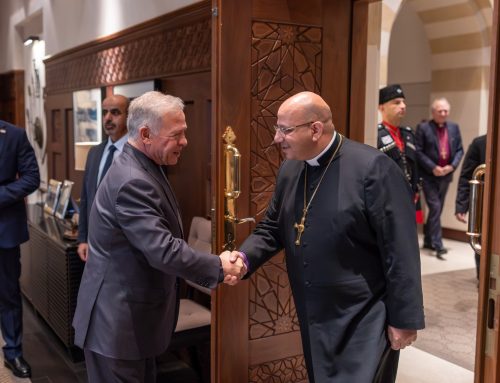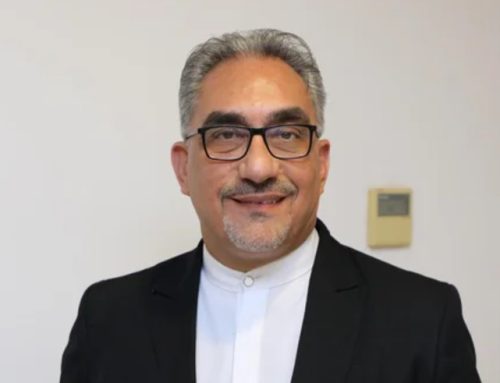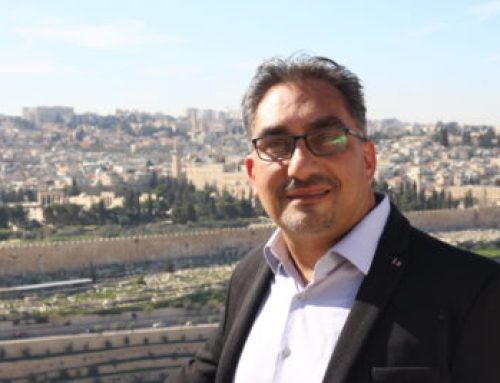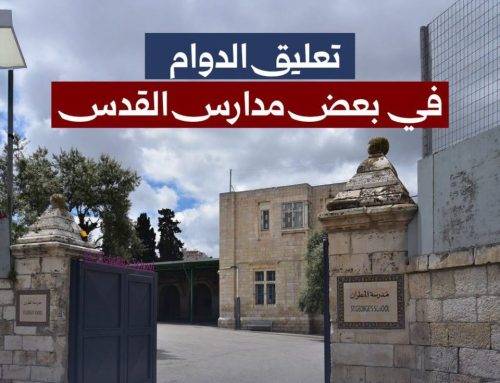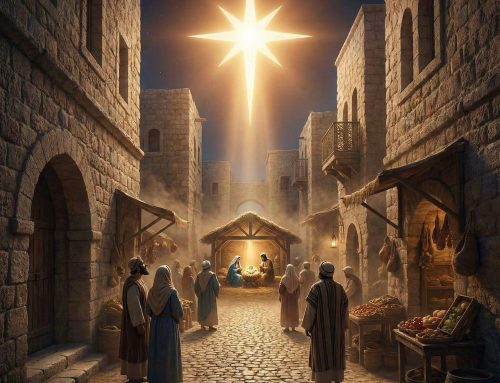Forgotten amidst the news of violence, war, occupation, and invasion, beneath the discussions of Israel's separation wall, closures, imprisonment, and home demolitions, behind the cries of concern for the shrinking Christian Palestinian population …
Forgotten amidst the news of violence, war, occupation, and invasion, beneath the discussions of Israel's separation wall, closures, imprisonment, and home demolitions, behind the cries of concern for the shrinking Christian Palestinian population and decreasing liveliness of Christian holy sites are the daily lives of the Palestinian people. Despite the conflict and occupation around them, Palestinians, like all people, find solace and a space to assert themselves in a variety of local outlets, civil society, and recreational activities. I had the opportunity to experience in depth one such activity when I attended the 17th annual camping trip of the Arab Orthodox Scout Troop from Beit Jala.
I first met members of this scout troop, comprised of 375 youth from their early teens to their mid-twenties, during my HCEF living stones pilgrimage tour in June 2006 when they welcomed us to their scout clubhouse for a cultural night, to the Beit Jala Orthodox Church club to watch the World Cup, into their homes for overnight home-stays, and in joint service as we together cleaned the church cemetery. After my HCEF group returned to the US and I stayed in Bethlehem as a volunteer in the Dheisheh refugee camp, these scouts continued to welcome me and support me as I adjusted to my new life in Palestine.
Thus, when they invited me on their annual camping trip I could not refuse.
The eight day camping trip was not a leisurely vacation but an intense camp designed to build and strengthen individual character among the 120 scout participants and leaders, both male and female ranging in age from eleven to fifty-two. The camp routine and activities concentrated on building discipline, leadership, self-confidence, responsibility, patriotism, and teamwork. The scouts woke up every morning at dawn to raise the Palestinian and scout flags, made their own breakfast, sat through lectures and worked around the camp during the day, cooked their lunch and dinner, lowered the flags at dusk, held small parties for their families where they shared they talents through song, poetry, and drama pieces that they had created and written themselves, and then concluded the day with late-night marching drills. The scouts pride themselves in the difficulty of the camp site: their floorless tents sat on harsh clay earth, the lack of shade allowed the hot July sun to shine and heat at full force; they cooked their food on the fires they built behind their tents, and showered with single hoses enclosed by cardboard slabs as walls. But instead of being a source of complaint, these facilities only demonstrate their discipline and strength and are instead a great source of pride.
Pride and loyalty were attributes that dominated the troop in every activity. Scout pride was overwhelming; these young men and women take the scouts very seriously and are quite competitive. Because this year was the fiftieth anniversary of this particular scout troop, the scouts repeatedly mentioned the great importance of this camp. I was surprised to hear them talk about how they are the best troop in all of Bethlehem and probably all of Palestine, simply because I had no idea how widespread the boy and girl scouts were inside Palestine. In the Bethlehem district alone there are twelve Christian scout troops with two Muslim troops in the process of being established.
But the utmost pride and loyalty is the pride in country: .We are patriots,. said scout leader Tony Bero. Every morning the scouts carefully raised the Palestinian flag ensuring that it was always higher than the scout flag. During one afternoon when a group of us were escaping from the intense heat beneath the trees of a nearby school playground, the scouts entertained me with patriotic songs, the Palestinian national anthem, and sharing stories of youth killed during the Palestinian Intifadas. They all knew the songs, every word, and every detail of the stories. In addition, many of the scouts sported a symbol of Palestinian pride, whether it is a bracelet lined with a Palestinian flag, a tattoo reading Freedom, or a Palestine trinket hanging on a necklace, often next to a cross. This presence of a Palestinian symbol next to a Christian symbol was also prevalent, demonstrating a pride in being both Christian and Palestinian simultaneously. But combination of the two symbols often exerts another message. As a shrinking minority in the Holy Land, the dual symbols send a message of existence as Palestinian Christians, that they are still present, basically, as one scout leader told me, .That we are here..
What became clear at the camp is that as Palestinians continue with their daily lives despite the ongoing conflict, the ongoing conflict continues to affect their daily lives. The camping trip is in and of itself an attempt to feel an escape from the restrictions of Israeli occupation. As Bero commented, they are only allowed to go from Bethlehem to Beit Jala to Beit Sahour and back to Bethlehem, all of which are small municipalities of the Bethlehem district. The camp, albeit still within this district, is nonetheless a change of pace, a change in location and activity that somehow contradicts the mobility restrictions they face every day. Yet they can never completely escape the Israeli occupation. One night the camp was lit up by Israeli Defense Force (IDF) flares. As one scout counselors said, it was just the IDF.s way of showing Palestinians that they are there, watching them. She laughed as she commented that it must annoy them as they sit in the security tower located near the entrance to the camp site listening to them chant every morning: Long live Palestine, free and Arab.
The last night was the final celebration. Marching proudly in uniform headed by bag pipe players, the scouts performed the final songs for their families, lowered the flags one final time, and were presented with their badges. I even got a badge for my participation, as the honorary .leader from America..
Local civil society organizations such as the boy and girl scouts play a significant role in the lives of individuals, especially those living in times of conflict. The Palestinian scouts. activities, such as this camping trip, build strong individual character and strengthen community bonds. They provide outlets for expression and a temporary escape from the surrounding conflict. In addition, as a part of the international scouting community, the scouts are able to bridge connections across international borders through international scouting activities with Sweden, Jordan, Serbia, Lebanon, China, and Cyprus. As scout leader Shadi Zidane said, .We hope to build a relationship with the scouts in America..
Yet what is most important to remember is that behind every conflict are people who continue to live their lives as human beings. They laugh, they cry, they organize, socialize, and they live.

